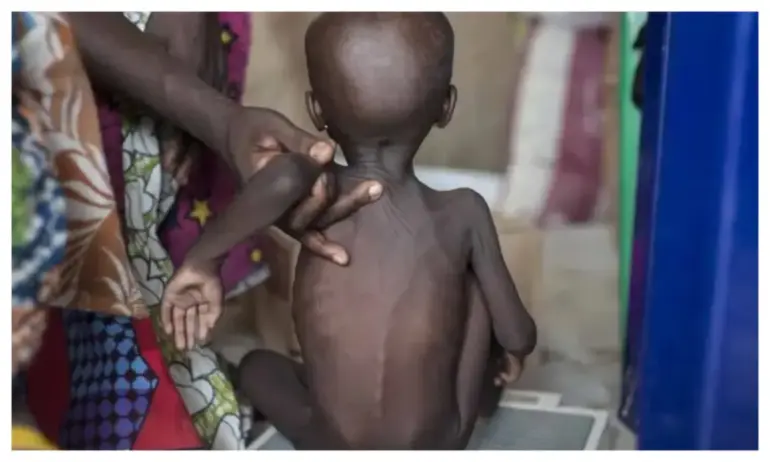NARD Raises Alarm Over Child Malnutrition, Calls for Urgent Action
The National Association of Resident Doctors (NARD) has raised concerns over Nigeria’s worsening malnutrition crisis, revealing that more than 35% of children under the age of five are affected, a situation it describes as a critical public health emergency.
In a post shared via its official X handle on Thursday, NARD warned that malnutrition remains a major contributor to child mortality and has far-reaching consequences on cognitive development, disease vulnerability, and national productivity.
“Malnutrition contributes significantly to child mortality. It also impacts cognitive development, disease susceptibility, and national productivity,” the association stated.
To combat the crisis, NARD highlighted key intervention strategies including the distribution of Ready-to-Use Therapeutic Foods (RUTF), Community-Based Management of Acute Malnutrition (CMAM), and Infant and Young Child Feeding (IYCF) counselling.
“Research shows these strategies significantly improve recovery rates and child survival,” NARD noted, adding that its members are actively engaged in implementing and researching these interventions across Nigeria.
The association called for greater support for sustainable nutrition programs nationwide, stressing the urgent need to protect the health and future of Nigerian children.
The warning comes amid growing national and international concern over Nigeria’s malnutrition burden.
In August, the Federal Government described the country’s malnutrition crisis as “a national emergency,” with the Special Assistant to the President on Public Health, Uju Rochas-Anwuka, revealing that the country loses over $1.5 billion annually due to the crisis. She noted that malnutrition is a major threat to human capital development and long-term national growth.
Earlier in July, Vice President Kashim Shettima also sounded the alarm, stating that nearly 40% of Nigerian children under five suffer from malnutrition. Speaking at the National Summit on Nutrition and Food Security in Abuja, he declared the situation “a national crisis.”
“It is a reminder that food insecurity is not only about hunger,” Shettima said. “It affects whether people can afford, access, and accept food that meets nutritional needs. It is about education and human capital.”
He called for urgent, coordinated action to address the crisis across all levels of government and society.
Further highlighting the severity of the issue, international humanitarian organisation Médecins Sans Frontières (Doctors Without Borders) reported in July that over 600 malnourished children had died in northern Nigeria within a six-month span. The group revealed that cases of the most severe forms of malnutrition surged by 208% between January and June, compared to the same period in the previous year.
The surge, MSF said, was driven by a combination of reduced international aid, rising food prices, and continued insecurity in parts of the country.
As the crisis deepens, experts and frontline health workers continue to stress the need for immediate and sustained intervention to reverse the devastating impact of malnutrition on Nigeria’s youngest and most vulnerable citizens.


